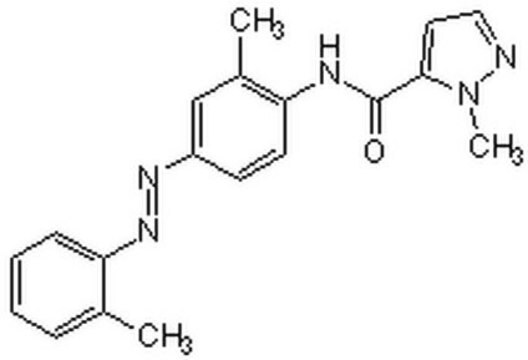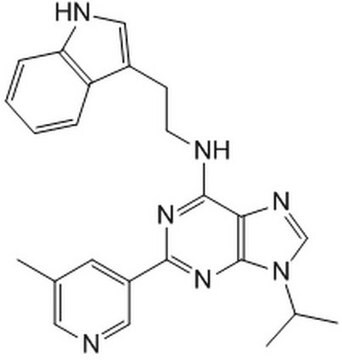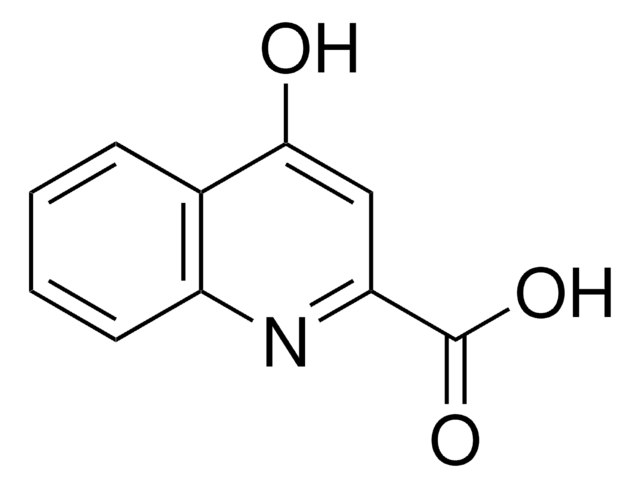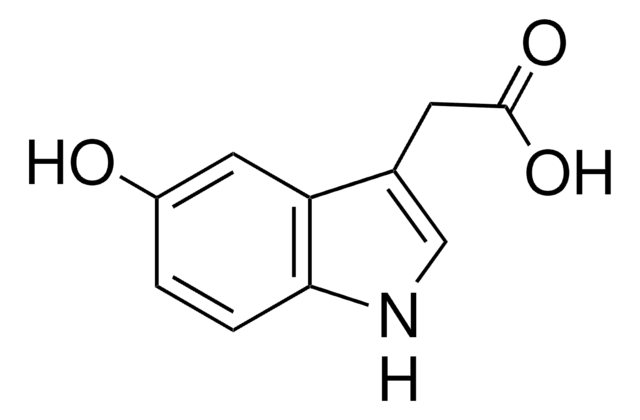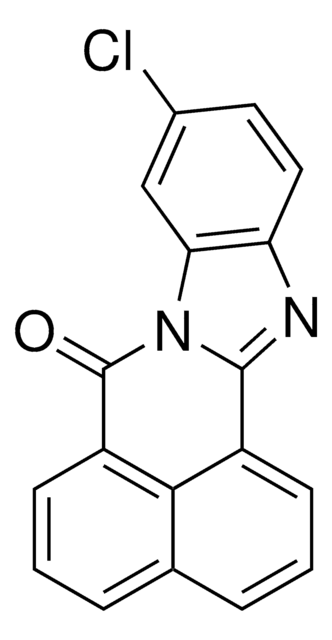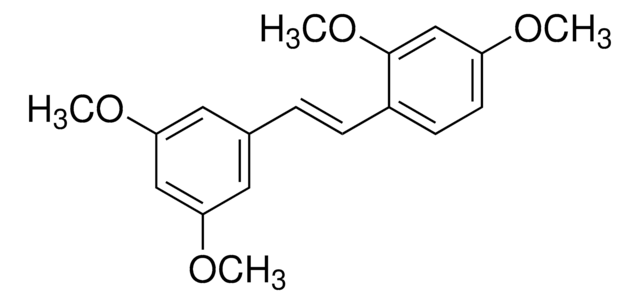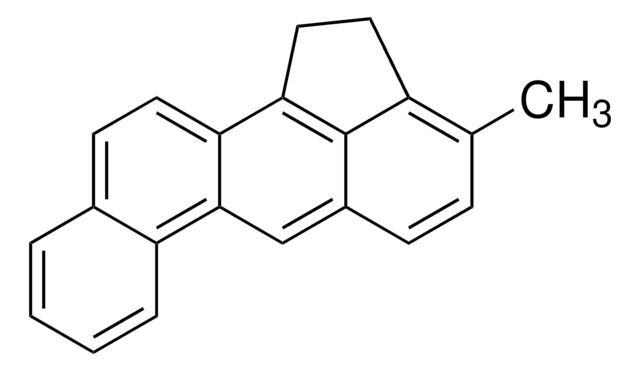C8124
CH-223191
≥98% (HPLC), powder, AhR antagonist
Synonym(s):
1-Methyl-N-[2-methyl-4-[2-(2-methylphenyl)diazenyl]phen yl-1H-pyrazole-5-carboxamide, 2-Methyl-2H-pyrazole-3-carboxylic acid (2-methyl-4-o-tolylazo-phenyl)-amide
About This Item
Recommended Products
Product Name
CH-223191,
Assay
≥98% (HPLC)
Quality Level
form
powder
color
orange-brown
solubility
DMSO: ≥20 mg/mL
storage temp.
2-8°C
SMILES string
Cc1cc(ccc1NC(=O)c2ccnn2C)\N=N\c3ccccc3C
InChI
1S/C19H19N5O/c1-13-6-4-5-7-17(13)23-22-15-8-9-16(14(2)12-15)21-19(25)18-10-11-20-24(18)3/h4-12H,1-3H3,(H,21,25)/b23-22+
InChI key
LKTNEXPODAWWFM-GHVJWSGMSA-N
Application
Biochem/physiol Actions
Features and Benefits
Storage Class Code
11 - Combustible Solids
WGK
WGK 3
Flash Point(F)
Not applicable
Flash Point(C)
Not applicable
Choose from one of the most recent versions:
Certificates of Analysis (COA)
Don't see the Right Version?
If you require a particular version, you can look up a specific certificate by the Lot or Batch number.
Already Own This Product?
Find documentation for the products that you have recently purchased in the Document Library.
Customers Also Viewed
Articles
We offer many products related to non-steroid nuclear receptors for your research needs.
We offer a variety of small molecule research tools, such as transcription factor modulators, inhibitors of chromatin modifying enzymes, and agonists/antagonists for target identification and validation in gene regulation research; a selection of these research tools is shown below.
Our team of scientists has experience in all areas of research including Life Science, Material Science, Chemical Synthesis, Chromatography, Analytical and many others.
Contact Technical Service